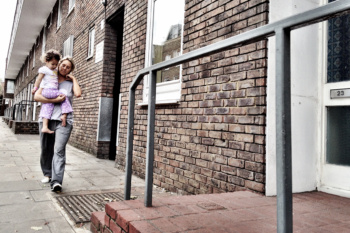
Vulnerable children are missing out on local school places due to religious discrimination, according to yesterday’s annual report from the Office of the Schools Adjudicator (OSA). The OSA is the impartial body that regulates English schools’ compliance with the Admissions Code. Humanists UK said it was appalled by the findings.
The report states on page 26 that:
‘A small but significant number of local authorities have again explained the difficulties which can occur if a high proportion of schools in their area which are good and outstanding have a religious character. Where this happens and those schools opt (as they are entitled to do) to restrict the highest priority to looked after and previously looked children of their own faith followed by other children of their faith, this can make it very hard or impossible for looked after or previously looked after children (LAC/PLAC) not of the relevant faith or faiths to secure a place in a good or outstanding school.
‘One put it like this: “Despite Diocesan guidance that best practice is to place all LAC/PLAC in the top criterion regardless of faith, we still have a number of Catholic schools that choose to split their LAC/PLAC criterion. As our Catholic high schools are oversubscribed …… this means that non-faith LAC/PLAC are unable to access these schools. As one of these schools is the only Ofsted rated Outstanding secondary school in the City, this means that non-faith LAC/PLAC are disadvantaged. Places cannot be offered at offer day, and the Virtual Head of the responsible LA has to pursue conversations with the school and potentially Direction in order to get those pupils admitted for the September start. This creates further uncertainty for these vulnerable young people when all their peers have confirmed school places.”’
Humanists UK, which has long campaigned for an inclusive education system free of religious discrimination, has reacted with dismay. Such discrimination is unfortunately common in England’s faith schools: UK law currently permits schools with a religious character to select anywhere up to 100% of pupils on faith grounds. Not only is it grossly unfair to treat children differently according to the faith of their parents, but the practice can perpetuate economic and social divides.
When this discrimination extends to society’s most vulnerable children, the scandal is even worse. Last year Humanists UK released a report, Careless or uncaring? How faith schools turn away children who are or were in care. It examined how faith schools can and do de-prioritise children who are or were in care in their admissions policies, by making use of their powers to select pupils on faith grounds. It found that 76% of Catholic secondary schools and 100% of Jewish secondaries discriminate in this way.
Humanists UK Education Campaigns Manager Robert Cann said:
‘It couldn’t be clearer: the Office of the Schools Adjudicator, the admissions regulator, states that selective religious schools are disadvantaging our most vulnerable children. It’s grimly ironic that faith schools, which claim to have their origins in providing education for the most disadvantaged children, are now using this privilege to exclude the very children they were set up to serve.
‘This latest finding only adds fuel to the fire for our longstanding campaign to end religious discrimination in admissions. We urge the Department for Education to take action to stop this occurring.’
Notes:
For further comment or information, media should contact Humanists UK Director of Public Affairs and Policy Richy Thompson at press@humanists.uk or phone 020 7324 3072 or 020 3675 0959.
Read more about our work on state-funded faith schools.
Read our article on Government plans to extend religious influence in state schools.
Read our article on religious segregation in Liverpool schools.
Sign our petition to end faith-based selection in schools.
Humanists UK is the national charity working on behalf of non-religious people. Powered by 100,000 members and supporters, we advance free thinking and promote humanism to create a tolerant society where rational thinking and kindness prevail. We provide ceremonies, pastoral care, education, and support services benefitting over a million people every year and our campaigns advance humanist thinking on ethical issues, human rights, and equal treatment for all.
